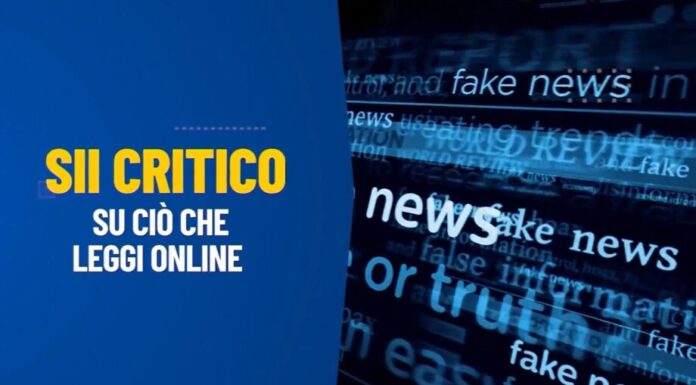«Be critical of what you read online: audio and video can be altered. Check the sources. Protect yourself from those who want to manipulate you». This is also how the game is played for the European elections.
#FightDisinformation
Many will have seen the #FightDisinformation campaign on TV and the web in recent weeks, promoted by the EU Commission and ERGA, the European Regulators Group for Audiovisual Media Services, which brings together the 27 national regulatory authorities in the sector. The initiative aims to counter informational distortions and manipulations spread during the European elections, which will call all Europeans to vote from June 6 to 9.
Disturbing déjà vu
False news, manipulated videos and audio are a disturbing déjà vu for those involved in communication and health, reminiscent of the most challenging months of the COVID-19 pandemic. Health, vaccines, and disease prevention initiatives remain among the most exploited themes by those aiming to undermine the credibility of European and national institutions. Recently, there have been additional risks of the instrumental use of artificial intelligence, chatbots, and deepfakes.
The EU’s commitment

«The massive wave of disinformation we had on health during the pandemic certainly caused deaths and severe hospitalizations for those who believed the false news or chose not to get vaccinated based on distorted and manipulated information – explains Antonio Parenti, Head of the European Commission Representation in Italy, to TrendSanità -. So, we are not talking about trivial activities with no effect on society. We are talking about real and concrete risks that the European Union and its institutions are very attentive to».
FIMI – Foreign Information Manipulation and Interference
These initiatives are created by internal and external EU actors. «Regarding the June elections – Parenti continues – it is particularly clear that there will undoubtedly be a strong attempt to influence the vote by foreign powers». The official refers to what is termed “FIMI – Foreign Information Manipulation and Interference“. Those identified in recent months have targeted health, the climate crisis and Europe’s measures to combat it, LGBTIQ+ people, and much more.
The strength of European democracy
Here, the EU Commission representative makes an essential clarification: «This is one of the limitations but, if we will, also the strength of our countries’ democratic system. There is debate, and there are different opinions that confront each other quite starkly. Then there is disinformation that must be defined, qualified, and seen as such. And, therefore, it must be fought, but everything must be done while preserving our democratic system, which allows discussion, unlike other countries where this freedom is highly limited. This is Europe today, and this remains one of its strengths».
From debunking to prebunking
Let’s return to the pandemic and the massive infodemic we experienced during those years. Many of the research and scientific initiatives undertaken during that period tried to strengthen citizens’ critical sense towards disinformation by evolving the concept of debunking (debunking false news after it has spread) into prebunking, providing the population with cognitive tools to recognize the recurring techniques and strategies of disinformation on all topics: health, climate, war, or gender differences. In this sense, the interesting collaboration of EDMO and IDMO (respectively the European and Italian observatories of digital media funded by the EU Commission) with platforms like Google and others, to “train” users, including the younger ones, with videos and animations should be noted.
Voting informed
«European institutions are naturally trying to facilitate the work of defining what information distortions are and identifying the sources of this disinformation. Because if, for example, we have strong activity from Russian state sectors, it is important that this is known so that citizens can vote in June in the most informed way. But informed on facts and opinions, not based on fake news spread by those who want to weaken Europe», concludes Parenti.


